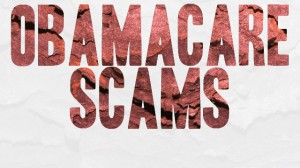 Medicare is a chronic focus of scam artists because of its huge size and moving parts” says Mark Miller a reporter for Reuters. Consumer advocate protection warns seniors that scammers will tell them they need to renew their Medicare coverage or sign up in the new exchanges in order to get them to divulge private information on forms. This leads to identity theft and improper payments. According to Miller the challenge is sorting out scams from the massive, legitimate outreach now under way to promote the new law.
Medicare is a chronic focus of scam artists because of its huge size and moving parts” says Mark Miller a reporter for Reuters. Consumer advocate protection warns seniors that scammers will tell them they need to renew their Medicare coverage or sign up in the new exchanges in order to get them to divulge private information on forms. This leads to identity theft and improper payments. According to Miller the challenge is sorting out scams from the massive, legitimate outreach now under way to promote the new law.
In Miller’s article he outlines some ways seniors can avoid getting hit with a healthcare scam:
- Be suspicious of solicitations. “Medicare will never call or knock on doors to solicit you,” says Dennis Jay , executive director of the Coalition Against Insurance Fraud, a national alliance of insurers, government agencies and consumer groups.. Don’t give sensitive personal information to anyone who solicits you. Legitimate enrollment outreach personnel won’t ask you for it – they’ll simply point you to places where you can sign up for insurance.”
- Look to a source you already know and respect. “If you already have a trusted financial adviser or an insurance agent who can help you, use that person,” says James Napoli, a Washington, D.C.-based senior counsel at the law firm Proskauer Rose.
- You can get additional counseling and assistance from the State Health Insurance Assistance Programs (SHIPs), which operate in every state (bit.ly/14Y6ZNt)
- Use official websites only. Seniors using the fall Medicare enrollment to shop for prescription drug or Medicare Advantage plans should sign up only through the official Medicare Plan Finder website (1.usa.gov/cK3At8) or by phone at 1-800-MEDICARE.
- Don’t sign up for new cards of any kind. “You don’t need a new Social Security or Medicare card,” says Leslie Fried, director of the National Center for Benefits Outreach and Enrollment at the National Council on Aging. “And you don’t need an ‘Obamacare card’ – there’s no such thing.”
- Report suspected fraud. The new federal healthcare marketplace call center can field questions about suspected fraud related to the ACA (800-318-2596) and the Federal Trade Commission can field complaints online #006e97;”>1.usa.gov/19c8LxC). If you have questions about fraud and Medicare, call 1-800-Medicare or contact us at 864-233-5260 to schedule a consultation to have your Medicare questions answered.
To read Miller’s article in its entirety, click here.